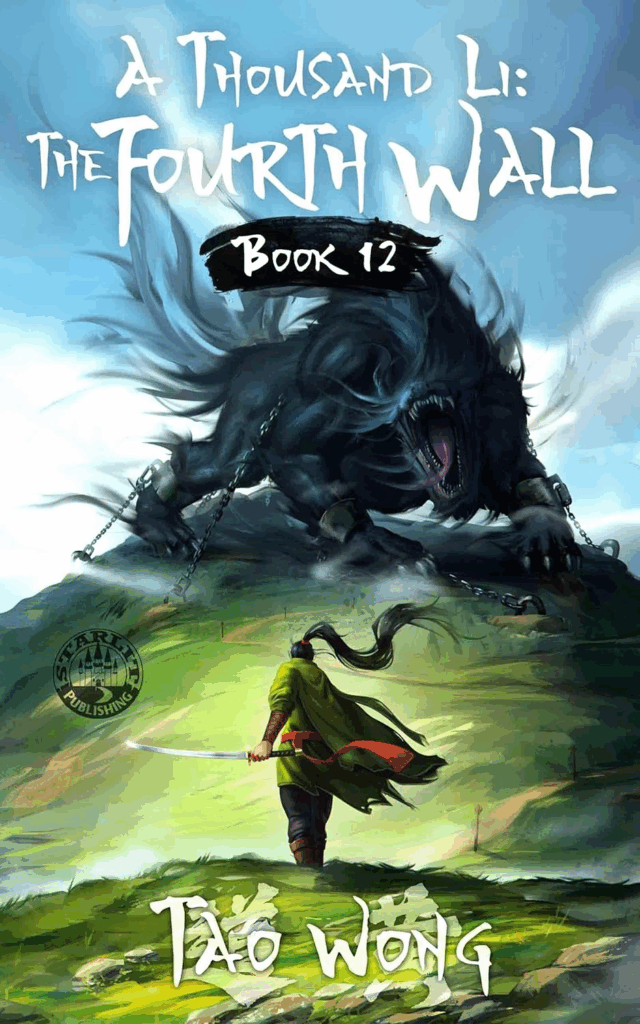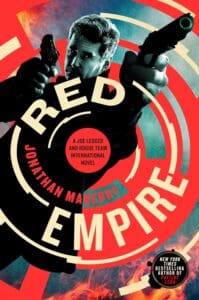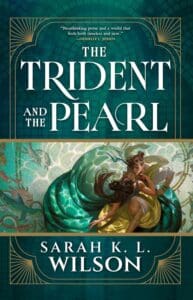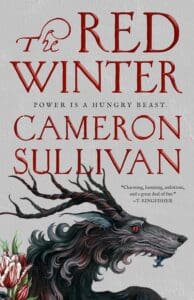
Blurb
The Final Step on a Thousand Li Journey
The half-Immortal tyrant of Cai has been defeated, but at a devastating cost. Wu Ying has sacrificed both his chance at immortality and his greatest treasure. Now, gravely injured and with his cultivation path shattered, he has to rebuild with the help of his friends.
To find his true destiny, Wu Ying must question everything he once knew, retracing his journey from the beginning. But this time, he does so with a broken body and shattered cultivation, racing against time before his injuries claim him.
The Fourth Wall marks the epic conclusion of A Thousand Li, a twelve-book xianxia progression fantasy series.

- Now that The Fourth Wall wraps up the series, how does it feel to say goodbye to Wu Ying and his journey?
Very satisfying. I always had a rough idea of how the story would end and what I wanted to do with him, but you never really know what it looks like until you write “The End.” Finishing it is always satisfying because it means putting a pin in the story.
- Looking back at where A Thousand Li began, what has surprised you most about how the story evolved?
The characters changed on me more than once. Certain ones, like Yin Xue, grew in importance, while others faded out as the story progressed. And then some entered the story with barely a ripple but ended up making a real impact. That’s why I love writing: the characters often take over and claim the spotlight in ways I never planned.
- Was there a moment or scene in the series that was particularly emotional or difficult for you to write?
The end of Book Six was one of the most emotional for me, both because of who appeared, the fight with the enemy cultivators, and the quiet scene that followed. That was a tough one. I had an inkling of what was coming, but putting it down on paper always seals the deal.
- Wu Ying’s path from farmer to cultivator is full of challenges. Was his journey inspired by any real-life experiences or figures?
Not any specific ones, though I drew from a wide range of sources: myths, religion, and general wisdom, especially those rooted in Daoism.
- What drew you to write in the cultivation/xianxia genre, and how did you approach making A Thousand Li accessible to Western readers while staying true to its roots?
I’d been reading a lot of newer cultivation webnovels and felt dissatisfied. Many of them strayed from the old-school wuxia stories I loved, where the xia, or heroic element, played a central role. Concepts like duty, honour, family, and loyalty—core to wuxia—felt diminished or even absent. I wanted to write something that blended the classic tropes with newer progression elements.
Making it accessible to Western readers meant using footnotes, adding in-character explanations, and including cultural context where needed. Sometimes I’d stop to explain why certain events unfolded the way they did, or why a choice made sense from a cultural or philosophical standpoint.
It doesn’t always land; some moments might still feel “off” to a Western reader. Wu Ying’s decisions or beliefs might jar. But that’s okay. I trust readers to recognize that people—and cultures—are different. My job is to help show them why.
- Without spoilers, what can readers expect from The Fourth Wall that might be different from earlier books?
After the last book, we find Wu Ying injured again, which isn’t unusual. But this time, the injury lingers. It truly affects him: how he sees the world, how he reacts to it, and how much he has to rely on others because he’s no longer who he used to be. I’d say that’s probably the biggest shift in this book.
It also begins to tie together the seeds I’ve been planting since Book One. It hints at his true path and why previous directions weren’t quite right. Hopefully, readers will find that payoff satisfying.
- Were there any risks you took in this final installment that you wouldn’t have taken earlier in the series?
I’m not sure I’d call them risks. Everything in this book feels like the culmination of what came before. If there was one thing I hesitated over, it was weakening Wu Ying as much as I did. That’s not something all readers enjoy. But knowing this is the final book in the series—and why—I think it works.
- What’s next for you now that A Thousand Li has come to a close?
The sequel series! This isn’t the end of the A Thousand Li universe—but in the next series, we’re going epic. There will be more POVs and a much wider scope to the story. Threads of what’s coming are already woven into the A Thousand Li books, so discerning readers might be able to guess what we’re planning in Celestial Cataclysms.
And yes, the name itself is a hint. 😉




Leave a Reply